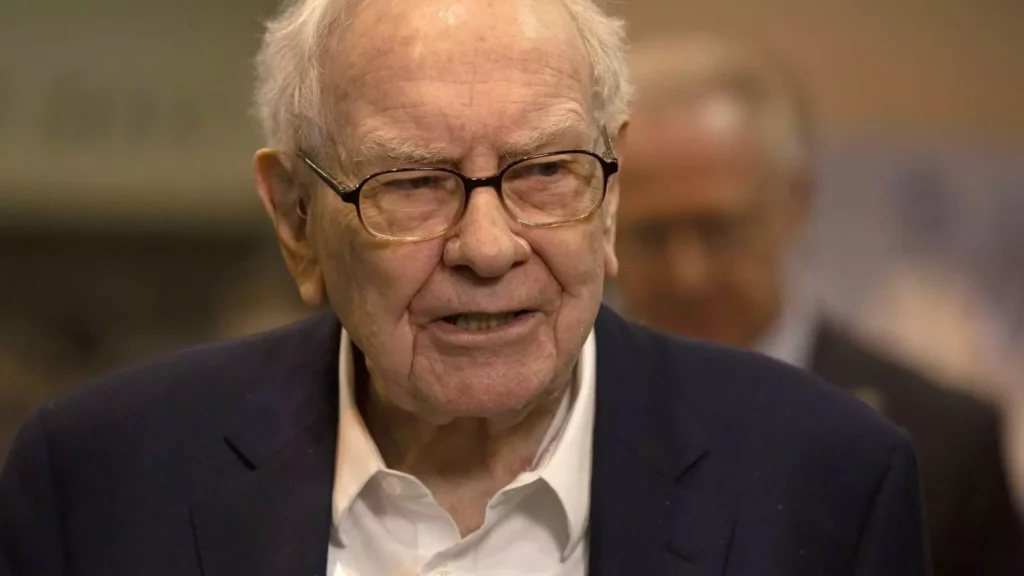In the third quarter of this fiscal year, Berkshire Hathaway has witnessed an extraordinary influx of cash, propelling its reserves beyond the staggering mark of $300 billion. By the end of September, the Omaha-based conglomerate reported a cash stockpile of approximately $325.2 billion, a marked increase from the prior quarter’s $276.9 billion. This surge in liquidity is a direct outcome of strategic stock sales executed by its iconic CEO, Warren Buffett, reflecting a cautious and calculated financial posture in a volatile market landscape.
The trajectory of Berkshire’s cash reserve is not merely a figurehead; it signals a deliberate shift in strategy, particularly as Buffett has leaned heavily into divesting significant stakes in widely regarded companies, with Apple and Bank of America at the forefront. The divestiture of approximately 25% of Berkshire’s sizeable investment in Apple marks a continuation of a pattern observed over the previous three quarters. Moreover, since mid-July, the conglomerate has accrued over $10 billion from selling its Bank of America holdings, illustrating a decisive pivot away from equity reliance toward liquidity accumulation.
The sheer magnitude of assets liquidated—totaling $36.1 billion in stocks for the third quarter alone—is a clear indication of Buffett’s prevailing sentiment in the current investment climate. This pronounced selling spree is complemented by the absence of share repurchases during the same timeframe. Earlier in the year, repurchase activity had already decelerated, as Berkshire’s shares appreciated significantly, surpassing broader market performance and reaching all-time highs.
The buyback strategy, a cornerstone of Berkshire’s financial approach, has become notably restrained, with only $345 million allocated for stock repurchase in the second quarter—a stark contrast to the $2 billion invested in prior quarters. Buffett’s philosophy is grounded in the belief that share repurchases should only occur when the stock price is undervalued relative to its intrinsic worth. This conservative approach has become increasingly pronounced as he navigates the unpredictable waters of the current economic environment.
Amidst a backdrop of resilient stock market performance, with Berkshire Hathaway’s Class A shares climbing 25% this year, outpacing the S&P 500’s return of 20.1%, one must consider the broader economic indicators that shape Buffett’s decisions. The ongoing concerns surrounding inflation and interest rates are paramount, particularly as recent data reveals a worrying rebound in the 10-year Treasury yield, which has exceeded 4%.
Buffett’s conservative stance appears to be a calculated response to signs of economic instability and potential market corrections. Investing luminaries, including Paul Tudor Jones, have begun expressing trepidations regarding the ballooning fiscal deficit and the likelihood that neither candidate in the upcoming presidential election will advocate for substantial spending cuts. Such sentiment underscores a rising nervousness about the sustainability of current economic trends, prompting seasoned investors like Buffett to adjust their strategies accordingly.
As Berkshire Hathaway continues to navigate these tumultuous economic conditions, one thing remains clear: Buffett’s strategic maneuvers are reflective of a broader desire to stay ahead of potential headwinds. By maintaining a robust cash reserve, the conglomerate positions itself favorably for future investment opportunities that may arise in a fluctuating market landscape. Buffett’s recent stock sales, while initially striking, may very well be a proactive measure intended to bolster liquidity in preparation for potential acquisitions or to weather future financial storms.
Berkshire Hathaway’s recent financial actions illustrate a nuanced approach to managing its substantial cash reserves amidst evolving market dynamics. With vigilant oversight and a commitment to intrinsic value, the Oracle of Omaha continues to carve a distinctive path forward, affirming his reputation as a shrewd and cautious steward of capital. As the market landscape continues to shift, all eyes will remain on Buffett’s next moves, and whether other investors would heed the lessons from Berkshire’s recent strategic pivot.

